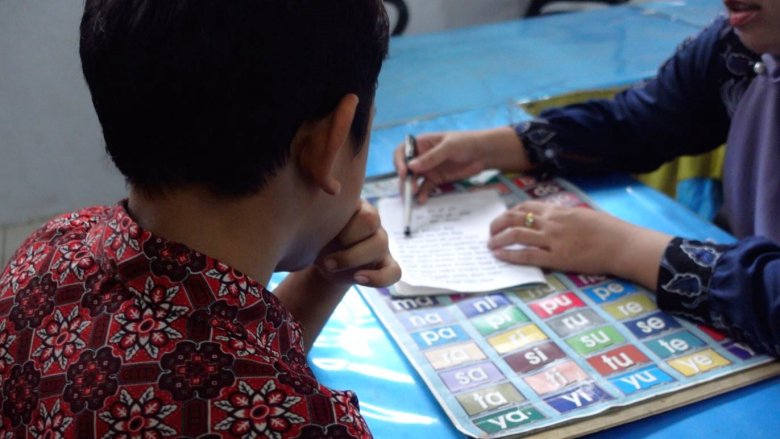Globally, children with disabilities are the ones most likely to be excluded from education. In Indonesia, almost 30 percent of children with disabilities do not have access to education, and many of those who are in school are underserved.
Despite progress in inclusive education policy development, implementation of inclusion education has a way to go. However, with Inclusive Education Initiative (IEI) Trust Fund, the World Bank is supporting the Indonesian government through an online pilot program to better diagnose the needs of learning for students with disabilities in rural areas and to identify gaps in serving these students. The positive response to the pilot suggests there is an opportunity to expand the program to 139,000 students with disabilities in Indonesia's inclusive schools.
The pilot, conducted by Wahana Inklusif Indonesia Foundation, took place in Lebak, Cilacap, Bondowoso, Ponorogo, and Bima districts, and ran from October 2021 to November 2022. It was initiated in response to a request from the Ministry of Education, Culture, Research and Technology (MoECRT) to assess students with disabilities during the COVID-19 pandemic.
The assessment tool was used in collaboration among professionals from the fields of education, psychology, and health, teachers, and parents. This multidisciplinary approach aimed to provide a more holistic evaluation. An online platform was used to engage all stakeholders.
As a result, more than 100 students with learning disabilities received a thorough diagnoses of their learning needs for the first time. Teachers received support in assessing reading and mathematics ability and in gathering health and psychological data for educators (mentors), psychologists, and health experts to assess. Teachers also worked with health professionals to record their students’ progress and from their mentors, they learned how to teach students with disabilities using Bahasa Indonesia and mathematics modules and to create individual education plans (IEPs) for each student.
The pilot program had lasting impacts on the student’s learning progression, and it has been appreciated by parents, teachers and education authorities. Niar, a mother of student with autism, said she has seen a significant progress in her son’s learning.
“With this program, my child who has special needs can receive his education as he should, the same as other students,” she said. “His development is significant. When he first entered school, he experienced difficulties in learning because he is autistic, but from this program, there have been changes. I hope all other teachers in the country can receive training like this so students with special needs can receive proper learning support.”
Teachers appreciated the guidance the program provides them.
“I’m very grateful because before the assessment, I just taught the students with disabilities based on what I knew,” said Aisyah, a fourth-grade teacher. “Now, I have a clearer program. My students could start by joining up words, and we continued to tutor them until they could read. The assessment and the IEP development helped the student learning process.”
The assessments conducted by the pilot also contributing to MoECRT’s education data management. In many cases, professional help is required to establish accurate diagnoses for students with disabilities. Because of the pilot, the quality of the data in Indonesian education database, or Dapodik, can continue to improve and helps in allocating necessary resources to students who are in need.

